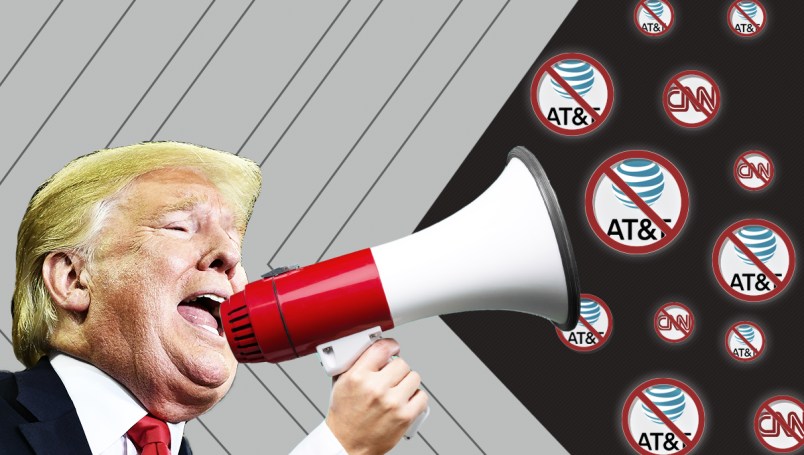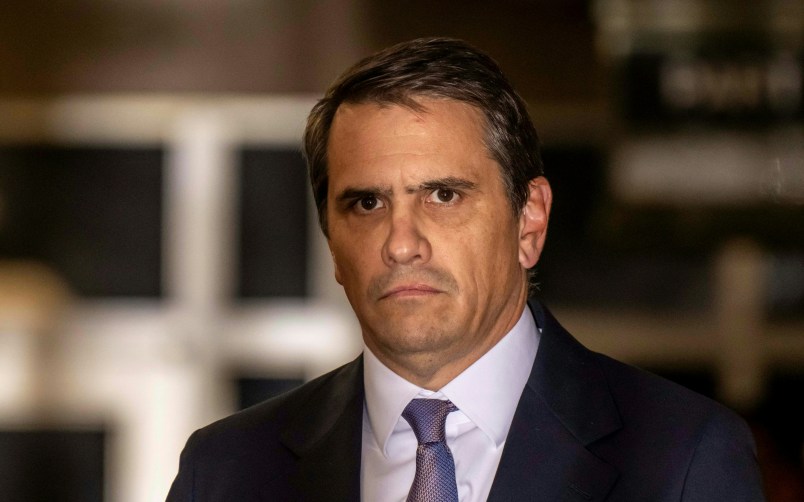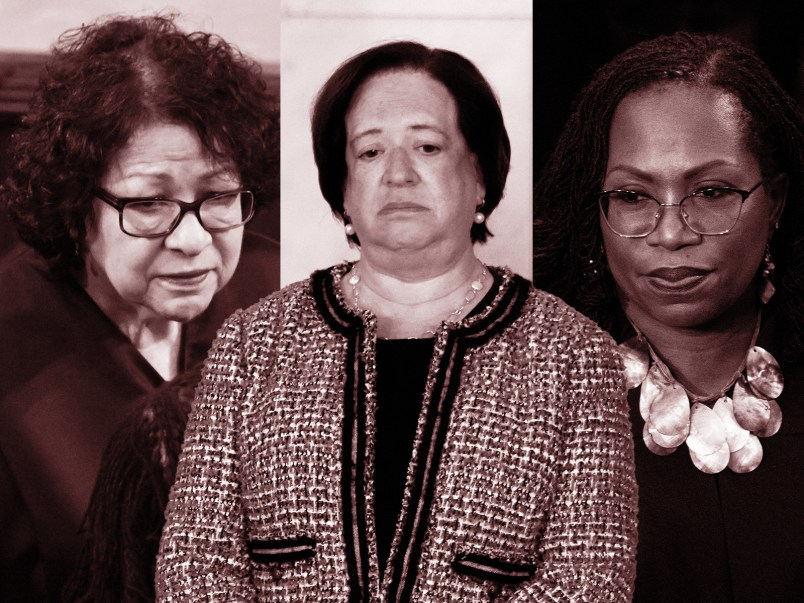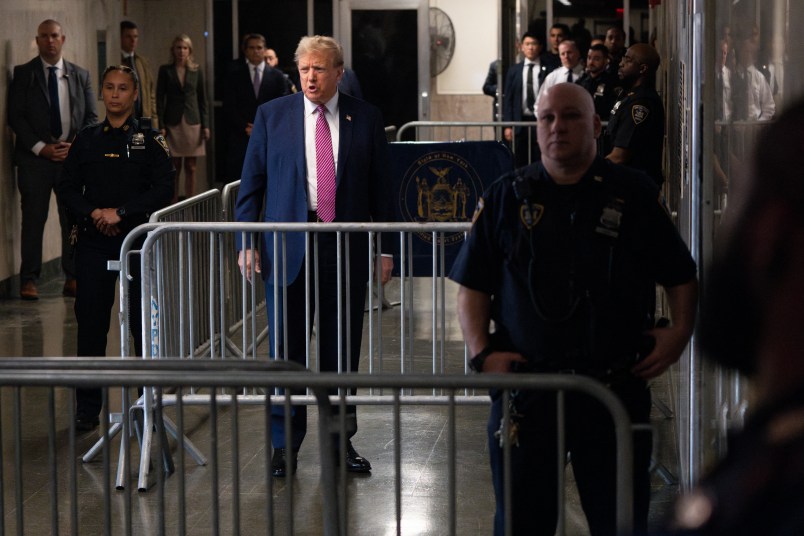President Donald Trump went another step further Monday in his war against negative press coverage of his administration, calling for a boycott of CNN’s parent company, AT&T. Trump’s aggressive use of his bully pulpit is hardly new, but targeting a private corporation because of that press coverage raises distinct legal and ethical questions, experts told TPM.
“I believe that if people stoped [sic] using or subscribing to @ATT, they would be forced to make big changes at @CNN,” Trump tweeted, saying the network broadcast “such bad, Fake News!”
“Why doesn’t owner @ATT do something” about CNN, he said in another tweet. Neither AT&T nor CNN responded to TPM’s request for comment.
“The idea that the President would be calling out a private company and effectively threatening them is, I think, somewhat impressive,” said Larry Noble, a CNN contributor himself and former general counsel for the Campaign Legal Center and the Federal Election Commission. “I can’t remember a situation like this.”
“The President’s call to boycott AT&T to hurt CNN is unprecedented and certainly a move to force changes at the network,” Scott Amey, general counsel at the Project on Government Oversight, told TPM.
Virginia Canter, chief ethics counsel at the watchdog group Citizens for Ethics and Responsibility in Washington (CREW), concurred, calling Trump’s comments “an abuse of his official position.”
“It’s particularly sinister because it has to do with not liking the reporting,” she added.
It appears Trump was still mad for CNN’s reporting that he’d called British royal Meghan Markle “nasty” in an interview — which he did, as audio of the exchange documented. Trump and his campaign raged against CNN reporting as much all weekend.
It’s hardly the first time Trump has called for a boycott — previously: Apple, Megyn Kelly, Italy — nor even his first as President. He called for a boycott of Harley Davidson “if manufacturing moves overseas” in August last year, and tweeted “we should boycott Fake News CNN” in November 2017, in response to the network saying it would skip the White House Christmas Party.
But most of Trump’s targets are public figures or broadcasters accustomed to fielding insults. Going after a private conglomerate with major government contracts rings different ethics alarm bells, experts said.
Trump has a history of targeting AT&T, unsuccessfully speaking out against the company’s acquisition of CNN’s parent company, Time Warner.
Trump famously said during the 2016 presidential campaign that he would oppose AT&T’s acquisition of Time Warner; AT&T’s lawyers attempted to use those statements against the Justice Department when the Trump administration sued to block the merger on anti-trust grounds in late 2017.
A judge ultimately approved the historic merger last June, but notably rejected AT&T’s effort to obtain records of the White House’s communications with the DOJ concerning similar mergers — an effort to prove “selective enforcement” against AT&T.
The New Yorker reported in March that Trump ordered his top economic adviser, then Gary Cohn, to pressure the Justice Department to block the merger before it did so; he also reportedly pressured then-White House chief of staff John Kelly on the same matter. Cohn and Kelly, reportedly, did not apply pressure to the DOJ.
Kathleen Clark, a law professor at Washington University in St. Louis, compared Monday’s tweets to Trump’s attacks against Amazon owner Jeff Bezos. Bezos also owns the Washington Post, and Trump has accused the paper of unregistered lobbying on its owners’ behalf. The President even reportedly urged the postmaster general to raise postage rates for Amazon.
“Amazon is relevant here not just because it is a big company, but because it is currently a significant government contractor and it is being considered for the award of an enormous defense contract,” she said.
Amazon and Microsoft are finalists for a multi-billion-dollar cloud computing contact with the Defense Department. AT&T is similarly tied to the government: it was revealed last year that the telecomms giant was awarded a $3.3 billion National Security Agency contract.
These corporations, Clark noted, are tied to “the security operation of the United States government.”
Canter, the chief ethics counsel at CREW, brought up what’s known as the White House “contacts policy,” which sets rules for how White House employees communicate with executive branch agencies.
Normally, she said, the White House would refrain “from commenting on any issue that could raise a regulatory and enforcement issue, unless it had been clearly vetted, and normally that process would be left to the regulator.
“Any time you make this kind of statement, it would show that any normal process has been usurped by the President’s bias,” she said, adding: “I would be very concerned, from a White House perspective, that it could undermine any appearance of impartiality by any agency.”
Noble also raised concerns about the chilling effect Trump’s attack could have on smaller publications.
“AT&T’s a big company, CNN’s a big company, they can handle themselves,” he said. “What happens now to smaller media outlets who wonder: if they’re going to criticize the President, is he going to come after them?”
“At some point,” he added, “it’s government interference in the First Amendment rights of an organization. It is coming close to the government trying to shut down media.”
He wondered aloud: “The question is: Is he going to stop, and where does he go after this?”










